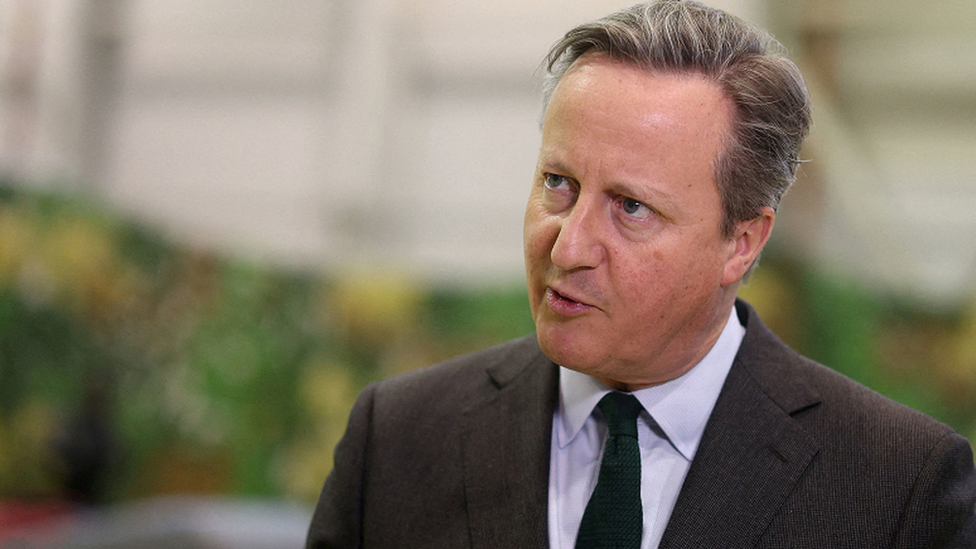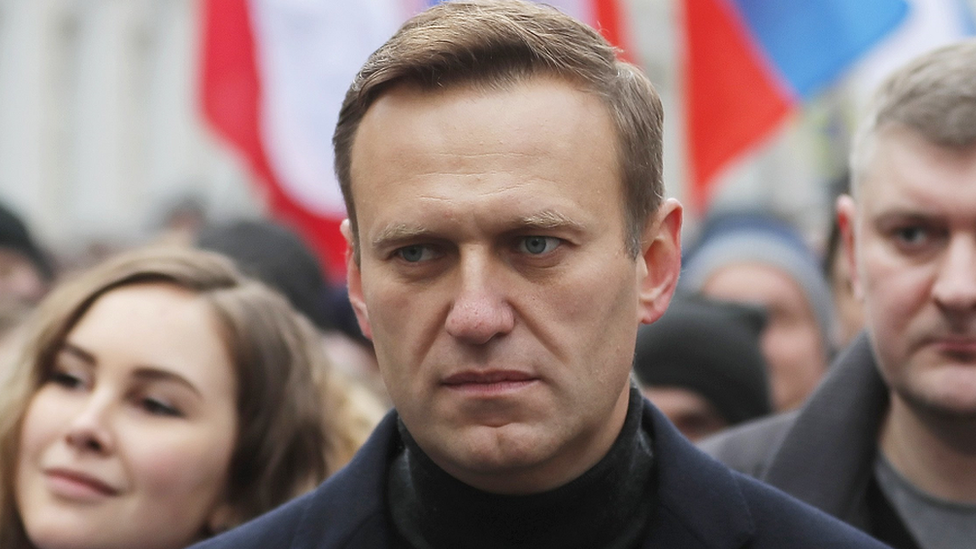UK targets Russian military with further sanctions
- Published

Lord Cameron said British sanctions are "starving Putin of the resources he desperately needs to fund his struggling war"
The UK has announced more than 50 further sanctions against Russia ahead of the second anniversary of the invasion of Ukraine.
The sanctions target individuals and businesses sustaining Russian President Vladimir Putin's war effort.
Foreign Secretary Lord David Cameron said the UK would continue to back Kyiv "for as long as it takes".
It follows the sanctions imposed on six Russian prison bosses after the death of opposition leader Alexei Navalny.
The Foreign Office said the latest sanctions would crack down on those supplying Russia's military with munitions such as rocket launch systems, missiles and explosives.
The sanctions also target key sources of Russian revenue, clamping down on metals, diamonds and the energy trade, in a move designed to cut off funding for President Putin's war efforts from every angle, officials said.
Announcing the new measures, Lord Cameron said: "Our international economic pressure means Russia cannot afford this illegal invasion.
"Our sanctions are starving Putin of the resources he desperately needs to fund his struggling war.
"Together, we will not let up in the face of tyranny. We will continue to support Ukraine as it fights for democracy - for as long as it takes."
Among those sanctioned are oil trader Niels Troost, and his company Paramount Energy and Commodities SA, and Pavel Alekseevich Marinychev, the new CEO of Alrosa, the largest state-owned Russian diamond producer.
Several foreign companies have also been targeted for their part in facilitating Russia's war effort, the Foreign Office said.
Saturday marks the second anniversary of Russia's full-scale invasion of Ukraine.
The conflict is largely at a stalemate, though Moscow appears to have made recent advances. Ukrainian President Volodymyr Zelensky has publicly urged western allies to provide more weapons or risk emboldening Russia's forces.
The EU is working on its own package of measures to coincide with the anniversary of the war.

Alexei Navalny, pictured here at a rally in 2020, was President Vladimir Putin's fiercest critic
The British sanctions come a day after the Foreign Office announced it had frozen the assets and implemented a travel ban on Russian prison bosses in charge of the penal colony where Alexei Navalny died.
The measures faced criticism from some corners for not going far enough.
The government says it has sanctioned 2,000 individuals, companies and groups under its Russia sanctions regime.
The US has also pledged fresh sanctions on Russia following Navalny's death, expected to come later this week.
Navalny, who was the Russian opposition's most significant leader for the last decade, had been serving a 19-year sentence on charges many viewed as politically motivated.
The Russian prison service said he died at the IK-3 Arctic penal colony, nicknamed "Polar Wolf", on Friday of last week after taking a walk and suddenly collapsing.
Navalny's team alleges he was murdered on the orders of President Putin. Western leaders also lay the blame for his death squarely at Mr Putin and the Russian authorities.
Mr Putin has not directly commented on his death. The Kremlin did acknowledge his death and said the Russian president was aware.
- Published21 February 2024
